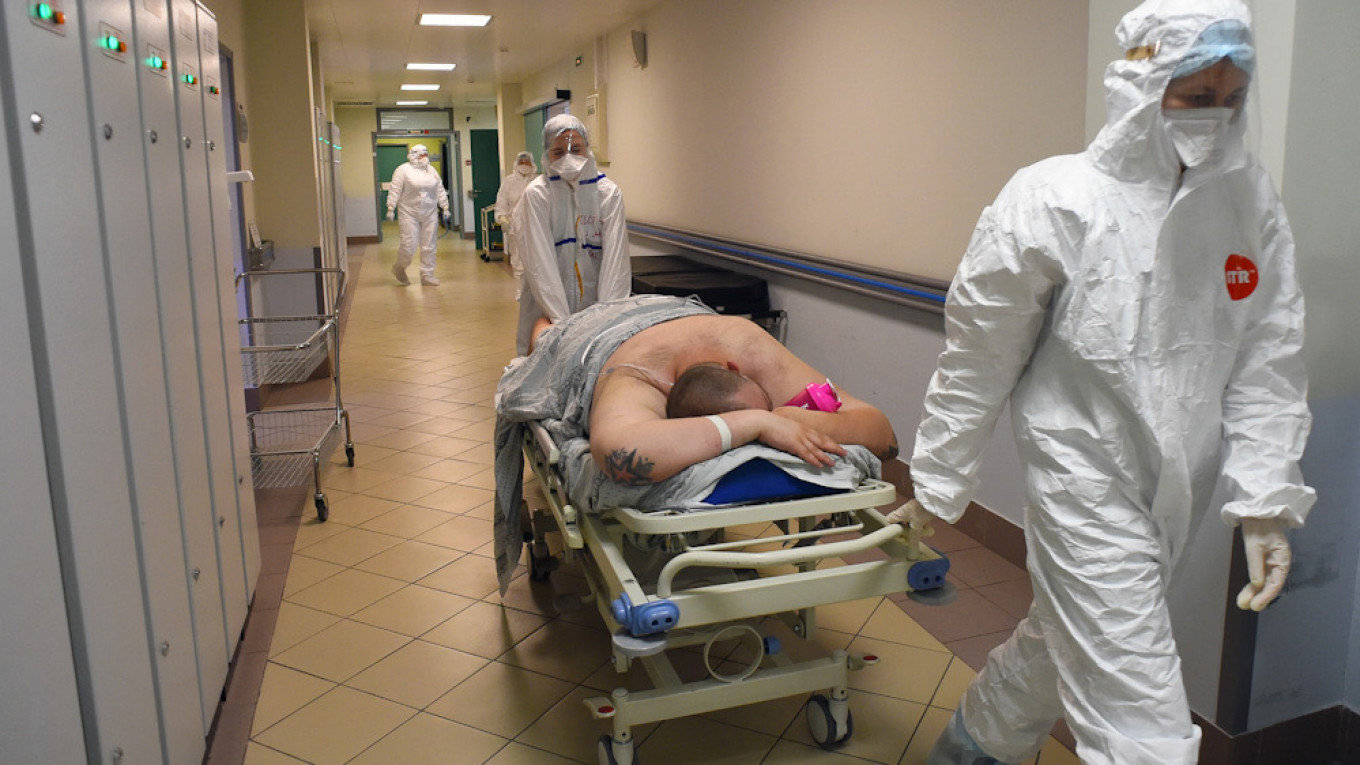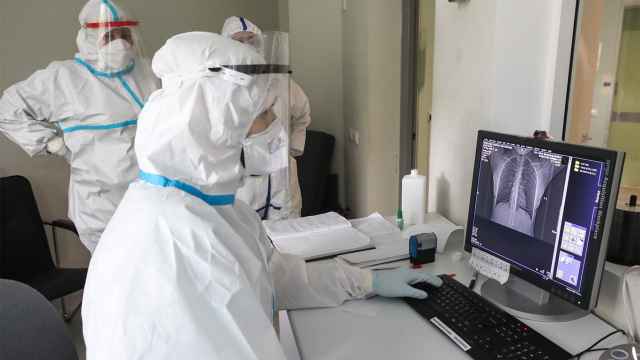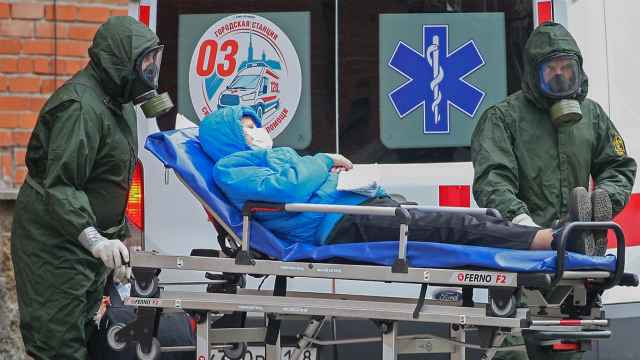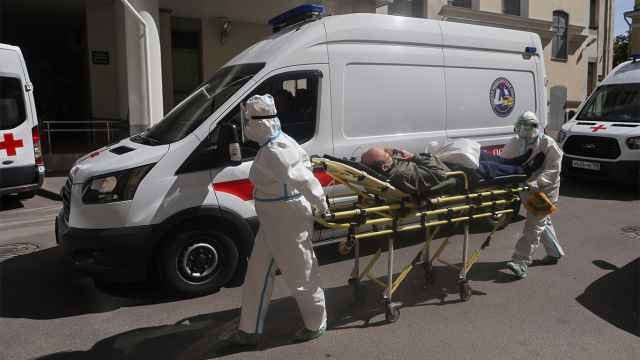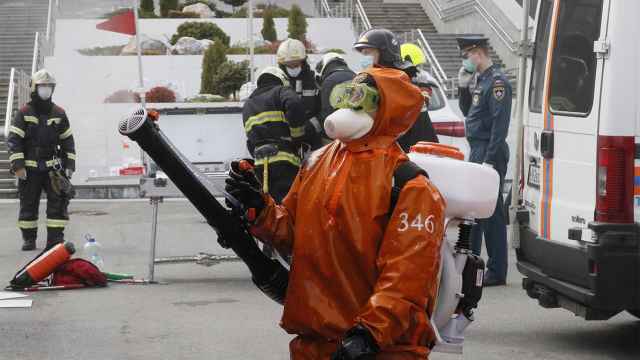Dressed in heavy protective gear during a record-breaking heatwave, doctors at St. Petersburg's Mariinsky hospital have struggled in recent weeks to treat an overwhelming influx of coronavirus patients.
Like the rest of Russia, the city has been hard hit by a new wave of the pandemic fueled by the highly infectious Delta variant.
The country's third wave — which arrived as temperatures soared to over 30 degrees Celsius (86 degrees Fahrenheit) — has taken many Russians by surprise as authorities struggle to counter widespread anti-vaccine sentiment.
Covered from head to toe in medical overalls and wearing rubber gloves and goggles, doctor Alexei Lepakov said he would "sometimes lose three kilos in a day because of the heat."
"It's hard," he said as several new patients were brought in by ambulance. "But we're used to it."
On Tuesday, Russia recorded 737 virus deaths and 23,378 new cases—a record for the country since the start of the pandemic.
Almost all 760 beds are occupied in the Mariinsky hospital's "red zone," which is exclusively for Covid-19 patients.
Doctors have not seen this many coronavirus patients since mid-January, when Russia was coming out of a second wave.
And this time, they have also had to contend with the heat.
While Russia's second city recorded its highest temperatures in more than a century at the end of June, staff at the Mariinsky worked for several hours dressed in full protective gear.
'You have to get vaccinated'
Inside the intensive care department, patients in the most serious condition are hooked to ventilators.
Two dozen patients of different ages lie either on their front or on their side.
Many are awake. One middle-aged man lies on his back, looking at the machine he is hooked to while panting heavily. A younger woman lying on her side holds on to her ventilator tubes.
All 24 beds of the intensive care unit are occupied, the head of the department Pavel Yermakov told AFP.
He stresses that all the patients are in extremely serious condition and that a lot depends on their physical state "for them to get out."
Within an hour, two bodies wrapped in black were taken away by staff.
"I am sorry," Yermakov said.
But he added that "luckily, most get out."
That was the case for Mikhail Konovalov, who spent several days in the intensive care department before beginning to recover.
"All I can say to everyone: you have to get vaccinated," the 45-year-old airport employee said from his hospital bed.
But Russians continue to be skeptical towards vaccines.
Despite free vaccinations having been available since December, so far only 18.5% of 146 million Russians have been fully vaccinated.
The slow uptake illustrates hesitancy among the 54% of Russians who say they don't plan to get vaccinated.
Outside the imperial-era hospital, a guard gestured to a line of people carrying flowers the way to the morgue.
"Since mid-June, more and more people end up here. It's Covid," he said.
A Message from The Moscow Times:
Dear readers,
We are facing unprecedented challenges. Russia's Prosecutor General's Office has designated The Moscow Times as an "undesirable" organization, criminalizing our work and putting our staff at risk of prosecution. This follows our earlier unjust labeling as a "foreign agent."
These actions are direct attempts to silence independent journalism in Russia. The authorities claim our work "discredits the decisions of the Russian leadership." We see things differently: we strive to provide accurate, unbiased reporting on Russia.
We, the journalists of The Moscow Times, refuse to be silenced. But to continue our work, we need your help.
Your support, no matter how small, makes a world of difference. If you can, please support us monthly starting from just $2. It's quick to set up, and every contribution makes a significant impact.
By supporting The Moscow Times, you're defending open, independent journalism in the face of repression. Thank you for standing with us.
Remind me later.


